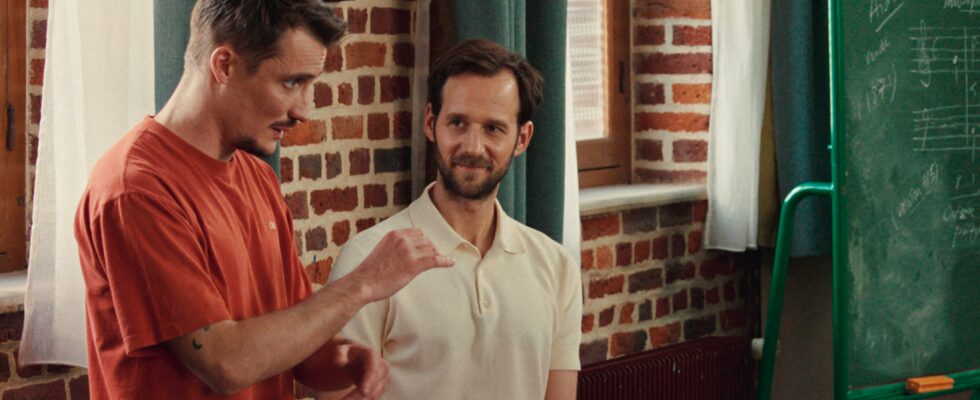This year 2024 was not only the year of our fabulous Olympic Games and the reopening of Notre-Dame. It was also an excellent vintage for French cinema. According to the CNC, the market share of French films reached 44.4% in our cinemas. A record. A little something extra exceeded 10 million entries and The Count of Monte Cristo almost reached them. Released late in the year, the fabulous Love phew by Gilles Lellouche is close to 5 million entries. With fanfareon screens since November 27, has already exceeded 1.3 million spectators in four weeks. The film by Emmanuel Courcol with Benjamin Lavernhe and Pierre Lottin, is a social comedy which takes place against a backdrop of deindustrialization in the Hauts-de-France region. As in The Full Monty And The Virtuosos but almost thirty years later, With fanfare features the artistic performance of workers whose factory is threatened with closure and a class conflict which attempts to be resolved through music. Go see it, it’s superb.
The emotion created by the film has partly to do with the phenomenon of deindustrialization. Far from being Manichean, the story tells of workers who love their work, who love their factory, who undoubtedly love their company and who refuse assistantship. These simple and fair ideas are much more widespread than we think, although they are under-represented in the media, which leaves a large audience for those who advocate the right to laziness and degrowth. The reality of our country is that the majority of our fellow citizens aspire to material progress and social elevation, without spontaneously having all the codes that allow them to achieve this, which is perfectly shown in Emmanuel Courcol’s film. . But the question is not only economic. A factory that shuts down not only means fewer jobs but also businesses that go out of business, a school that closes, a village that is deserted. This is why the subject of reindustrialization must be at the heart of our public policies.
The 2008 crisis has never been digested
Where is France in this regard? The study of the INSEE industrial production index is rich in little-known lessons. Since 1990, production in our country has been stable. More precisely, it increased by 1.8%. 1.8% in 34 years! Of course, this trend masks brutal variations. Our industry has almost recovered from the pandemic. On the other hand, it never recovered after the 2008 crisis. Here are several counterintuitive results: France does not suffer from brutal deindustrialization but from industrial apathy. The Covid that everyone has in mind has been digested (at the price of “Whatever it takes” which, from this point of view, was not useless). The 2008 crisis, which almost everyone has forgotten, had a deleterious effect by accelerating factory closures in France.
How to get out of this slump? The Welsh report of 2012 was a welcome development by raising awareness among those in power of the policy of supply, which constituted the matrix of Emmanuel Macron and Bruno Le Maire from 2017. Based on the reduction in taxation of businesses and capital, it has given some positive results: increase in foreign establishment projects in France, increase in the number of factory openings, spectacular arrival of gigafactories, particularly in Hauts-de-France. Unfortunately, the dissolution, political instability and the possibility of the RN or the NFP coming to power stopped this little momentum.
An industrial geography dominated by the United States
Unlocking the industrial potential of our country in the coming years is possible but by integrating new data. When we look at the industrial geography of the world, we see that very clearly, from 1989, manufacturing production capacities moved from the West to the East. Since 2022, they have tended to move from Europe and Asia to the United States, in particular thanks to the abundance of cheap and less and less carbon-intensive energy. The major simplification and deregulation plan announced by the Donald Trump/Elon Musk tandem is likely to accentuate this movement. If Europe and France turn a blind eye or content themselves with moral judgments on this policy, the little industry we have left will disappear. And social cinema With fanfare will then become the dominant genre.
Nicolas Bouzou, economist and essayist, is director of the consulting firm Asterès
.
